Basic arithmetic skills Normal Math Worksheets for 6-Year-Olds
6 filtered results
-
From - To
Set the foundation for strong math abilities with our Basic Arithmetic Skills Normal Math Worksheets, designed specifically for 6-year-olds. Kids Academy offers engaging exercises that cover fundamental concepts like addition, subtraction, counting, and number recognition. Our worksheets make math fun while constantly challenging young minds, helping them to develop critical thinking and problem-solving skills. Created by educational experts, these printable resources are perfect for classroom or at-home use. Start your child's mathematical journey on the right foot with our expertly crafted and age-appropriate activities, ensuring they gain the confidence and proficiency they need to succeed.
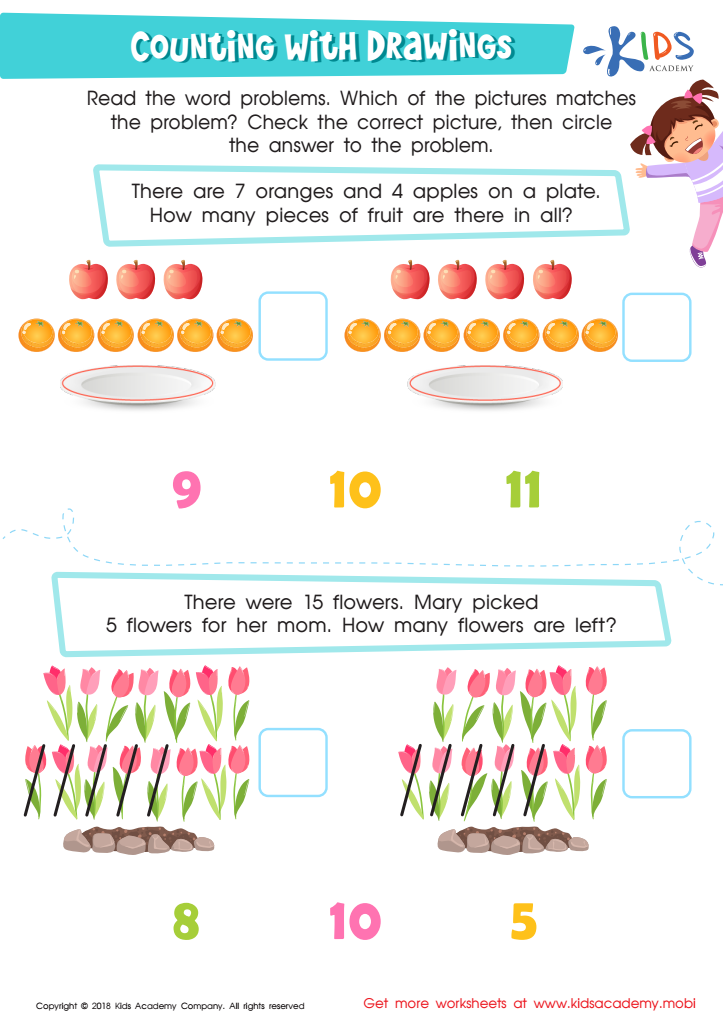

Counting with Drawings: Fruits & Chocolates Worksheet
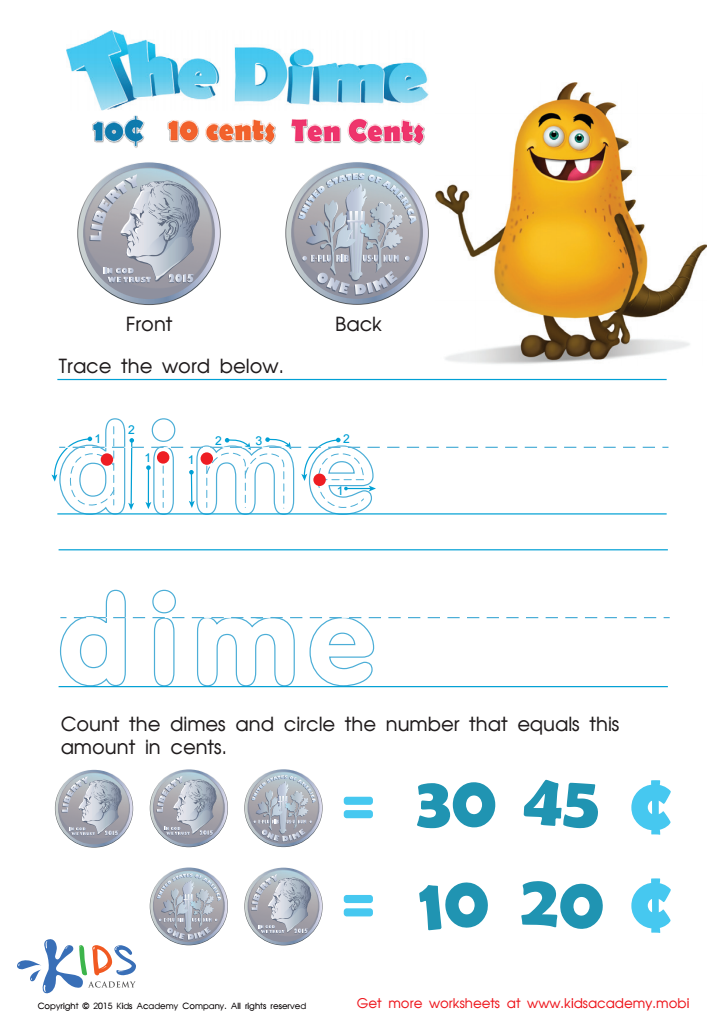

Ten Cents or the Dime Money Worksheet
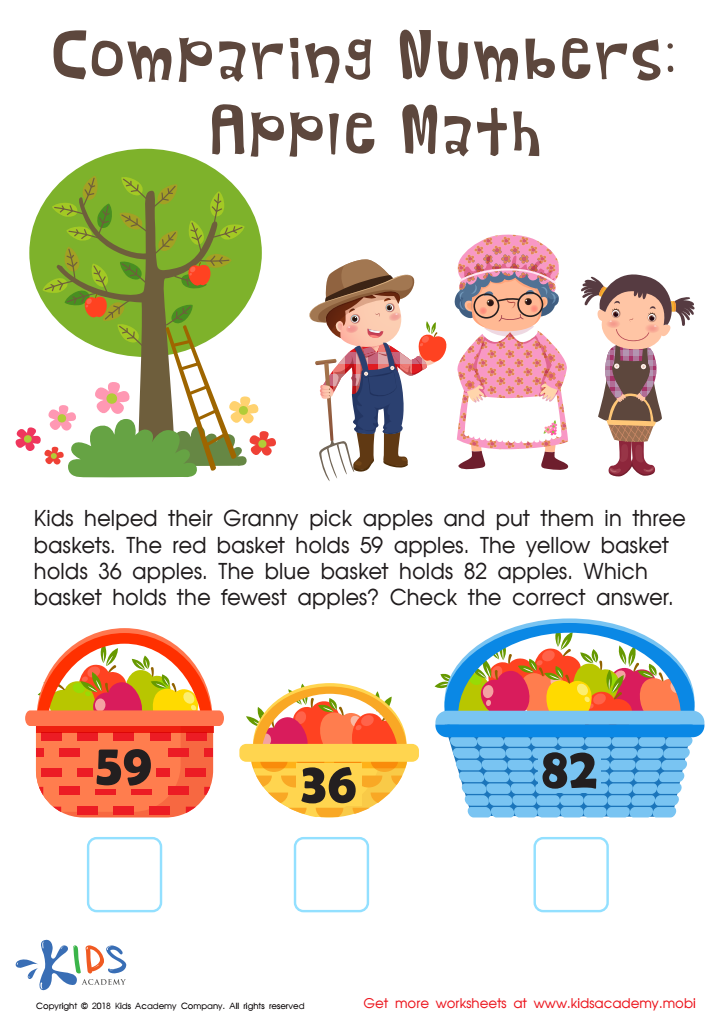

Apple Math Worksheet
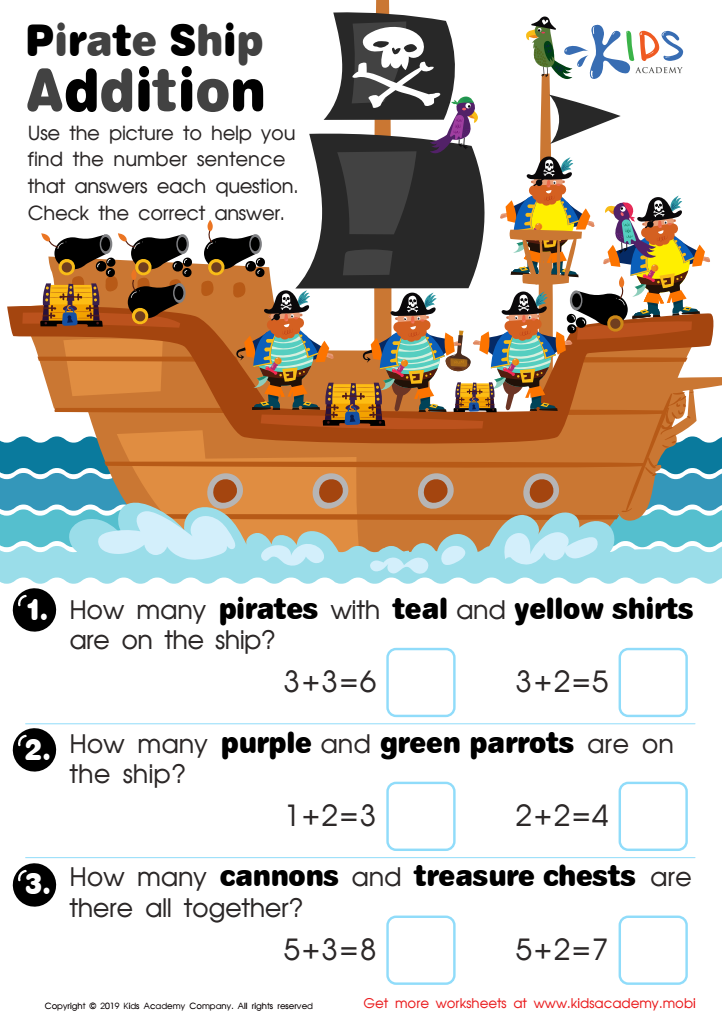

Pirate Ship Addition Worksheet
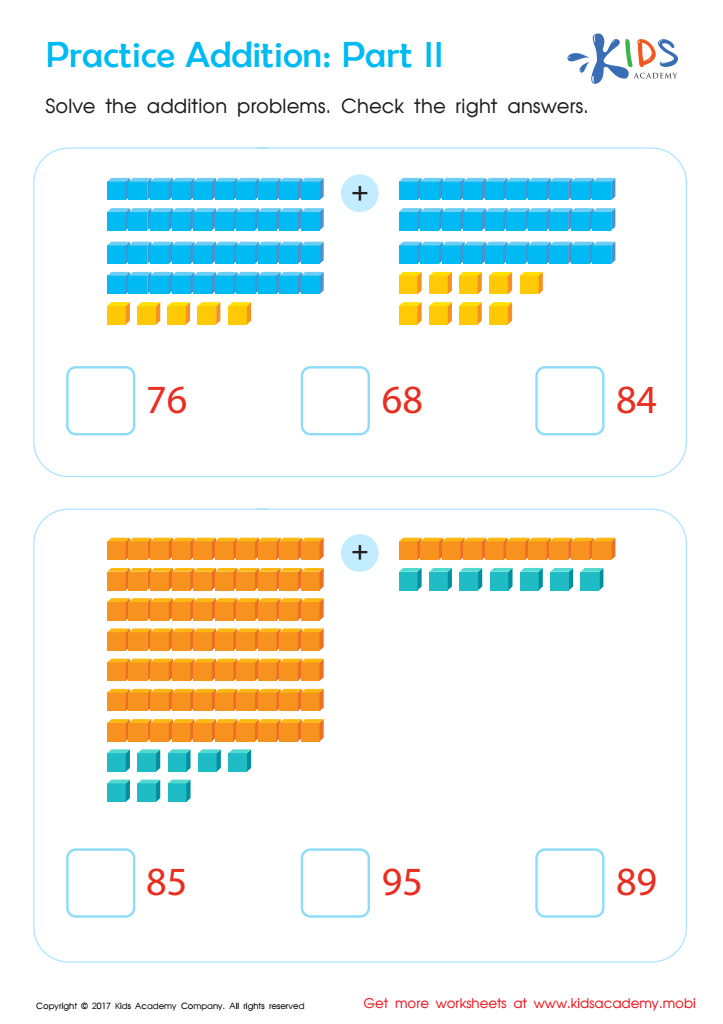

Practice Addition: Part 2 Worksheet
Basic arithmetic skills form the foundation of a child's understanding of mathematics, which is essential for their overall cognitive development and academic success. For 6-year-olds, who are typically at the first or second-grade level, basic arithmetic includes addition, subtraction, understanding numbers, counting, and recognizing patterns.
Parents and teachers should prioritize these skills because they are not just about learning numbers, but about developing critical thinking and problem-solving abilities. Arithmetic helps children learn how to approach problems methodically, recognize logical patterns, and improve memory through the practice of basic equations.
Moreover, early mastery of arithmetic opens doors to more complex mathematical concepts in later grades. Without a strong foundation, children may struggle with more advanced topics, leading to frustration and a lack of confidence in their abilities. A positive early experience with math can foster a love for the subject and encourage lifelong learning.
Finally, basic arithmetic is a crucial life skill. From telling time to handling money, these early math skills are part of everyday activities. Encouraging proficiency in arithmetic helps children develop independence and practical skills that they will use throughout their lives.
Hence, both parents and teachers play vital roles in nurturing these capabilities, ensuring that young learners have the tools they need to succeed both academically and in real-world situations.
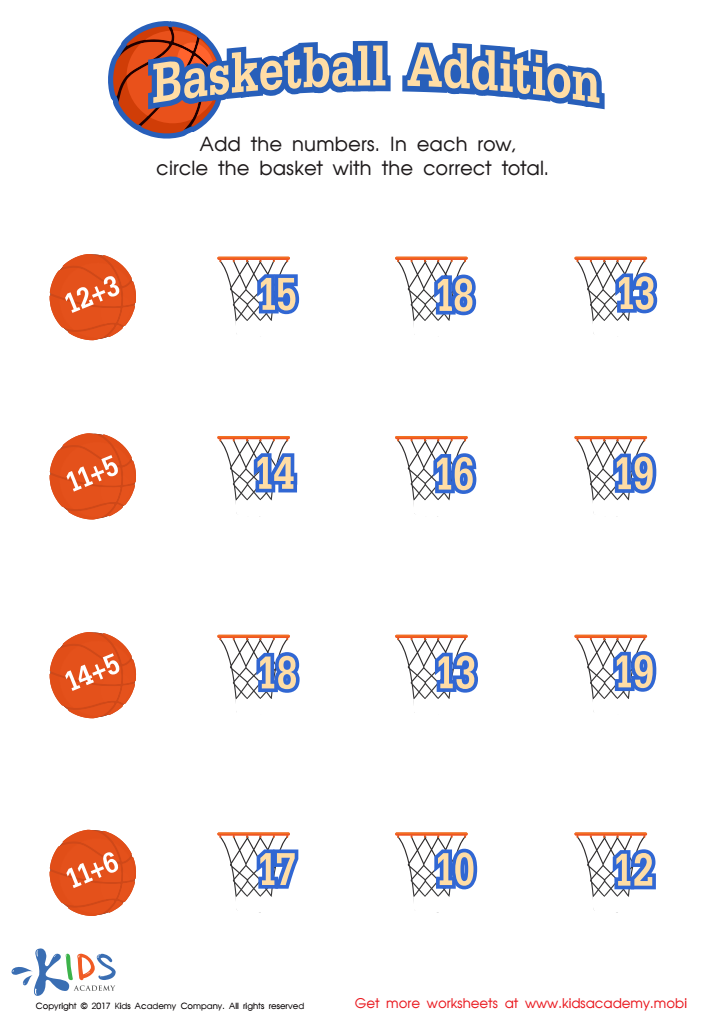
 Assign to My Students
Assign to My Students








%20(1).jpg)












